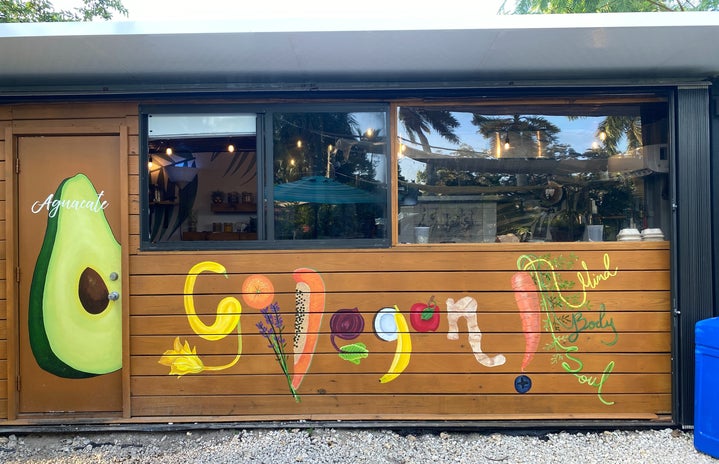Veganism is a lifestyle. A practice where people seek to exclude all forms of exploitation of animals in their lives. As western individuals that have been taught to have a diet rich in red meat and dairy products, it is not easy to start living off a plant-based diet. But it’s possible and if you do, still help the environment.
If you are not vegan, you must wonder: why would anyone limit their diet? What are the reasons behind it? Most people will say their main motivation is the farming animals industry. For Cristiana Maymone, a vegan for over 10 years and a nutritionist specialized in veganism, it was almost a natural decision. She says that when started to research the production process of what she ate, found much deeper issues such as a lack of land reform, work exploitation, and oppression dynamics.
Another main motivation is the environmental impact. You probably heard before that to save the planet we should reduce our water consumption by taking short showers, or reduce our carbon emissions by riding a bike instead of cars. At some level, performing these habits can help, however, in the long term, they are not nearly enough. According to research from Oxford University, going vegan is the single biggest way to reduce your impact on the planet. Here are the reasons why.
- Water conservation
-
Raising animals for food is responsible for up to 30% of the world’s water consumption. When we talk about beef, it is estimated that to produce only 1 kilo, over 15 liters of water is required, considering not only the animal’s direct water consumption but also the water used to produce its food. This amount of water is 20 times bigger when compared to rice, grains, beans, fruits, and vegetables, which are the base of vegan diets.
Meat-eaters consume the equivalent of 5000 liters of water a day, compared to the 1000 – 2000 liters used by people on vegetarian diets. Meaning that plant-based diets can cut down the average water footprint in half.
- Better use of land, more food on the table
-
Removing meat and dairy from your menu can greatly reduce the demand for monocultures and land needs. Globally, over 75% of the arable land is used for livestock, more specifically for pasture and feed production.
Cristiana also expresses her concerns on this topic: “How much longer will our planet endure with this intensive soy production for animal feed, monocultures, and chemical fertilizers? If we want a healthier world for the next generations we need to start thinking about our consumption now”.
A big amount of the food produced in the world is not being eaten by humans. In fact, it is estimated that 700 million tons of food that could be consumed by us go to livestock each year. Imagine if all that farmland was used to plant fruits, vegetables, and grains, globally, it could cause a huge positive change.
- Preservation
-
The world loses roughly the size of Panama each year to deforestation, which is often caused to open space for pasture. Deforestation can weaken the soil, cause erosion, threaten biodiversity and contribute to climate change. On the other hand, preserving the natural flora and fauna encourages ecological balance, nourishes the soil, and guarantees stability in the long term.
In Brazil only, livestock is responsible for 91% of the Amazon’s land destruction. It is also common to see indigenous unregistered land being stolen and invaded, by cattle ranchers and soy growers. Many environmentalists are worried that these kinds of attacks, besides devastating indigenous communities, can cause irreversible climate change.
Besides water conservation, better use of land, healthier ecosystems, and preservation, being vegan can also stimulate your local small business, your cooking skills, and overall health.
Given all the positive impacts a vegan lifestyle can provide, you should try to consider it. If you don’t feel like now is the best time for you to do it, you could try a few vegan products, or reduce your meat and dairy consumption a few times a week, instead of every day.
Regardless of how you want to act, Cristiana Maymone recommends going slow, and instead of being so worried about substitutes for meat, nutrients, and calories, try paying attention to pleasure in the food experience. She also says it is better to start adding than eliminating: try to incorporate fruits and vegetables in your daily life, once you do that and experiment with new flavors, the meat will be put aside naturally.
*All research and data were taken from the following sources: World Health Organization, The New York Times, The Guardian, The Independent UK, Vegan Society, International Water Management Institute, Vegan Australia, and Food and Agriculture Organization of the United Nations (FAO).
——————————————————————
The article above was edited by Nicoly Bastos.
Like this type of article? Check Her Campus Cásper Líbero’s home page for more.


